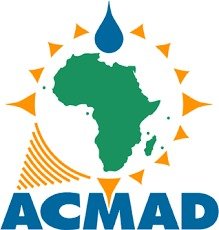COP29 - UNFCCC SIDE EVENT
Enhance Multi-Hazard Early Warning Systems, Effective Climate Services and Disaster Risk Management to inform Resilient Investment and Achieve Water GGAs
At COP28, Parties adopted the UAE Framework for Global Climate Resilience or Global Goal on Adaptation (GGA). The first thematic target of the GGA framework is dedicated to water and sanitation. It aims to “significantly reduce climate-induced water scarcity and enhance climate resilience to water- related hazards towards a climate-resilient water supply, climate-resilient sanitation and towards access to safe and affordable potable water for all”.
There is an urgent need to scale-up action to build water resilience and achieve GGA’s water targets. However, preparedness to climate extremes remains weak in most of the countries and finance necessary for adaptation interventions continues to lag. Half of the countries globally are not protected by multi-hazard early warning systems. Coverage is even worse for developing countries on the front lines of climate change. USD 3.1 billion new investment required to advance towards early warnings for all within five years. The World Bank’s 2024 Funding a Water Secure Future report found an annual spending gap of between $131.4 billion and $140.8 billion to achieve SDG targets related to drinking water, sanitation, and hygiene (in 2017 prices).
The side-event will discuss the importance of climate services to guide the identification, analysis, evaluation and treatment of risk and opportunities and the design of the most appropriate and cost- effective risk management and adaptation actions, enhance decision-making effectiveness, and support investment strategic planning. Early warning systems and user interface Platforms on climate services for water management under development with action plans, methods, tools, data, products and services as well as operational arrangements will be discussed. The side-event will also tackle the water-climate-finance nexus and discuss the different finance sources to bridge water resilient investment gap, including accelerating climate finance access.
Expected outcomes
- Use of multi-hazard early warning systems and climate services in decision making processes is showcased,
- Opportunities for financing climate services, early warning systems and water related climate action implementation are discussed.
- experience and best practices of climate services interaction with humanitarians on effective early warning for anticipatory actions and disaster risk management are shared.
Targeted Audience
- Water planners and decisions makers,
- National Meteorological services
- National Designated Authorities
- Disaster risk services managers and organisations,
- Humanitarian organisations
- Government officials/negotiators/policy makers/decision makers from Africa and other concerned countries;
- Climate service providers and users;
- Delegates from ACMAD, IGAD, ICPAC, GWP;
- Representatives from United Nations bodies and specialized agencies (WMO, UNEP,
UNDP, etc.); - International and regional organizations involved in resilience-building initiatives;
- Development partners such as AfDB, BMZ, EU, World Bank, etc.;
- Academia and research institutions;
- Community based organizations/Civil society organizations and non-governmental
organizations; - Private sector representatives, business leaders,
- Media.
Panelists

Philip Omondi (PhD)
Project Manager IGAD Climate Prediction and Application Centre (ICPAC)moderator
Topic: What is the role of effective climate services for adaptation
Philip currently manages the project “strengthening of Resilience of the IGAD region to the Adverse Impacts of Climate Change through effective Adaptation and Mitigation Actions (RICCAMA) for the IGAD Member States.
- Leads the initiative in analyzing the status of the climate in Eastern Africa.
- Previously, Senior Climate Risk Analyst with the United Nations World Food Programme (WFP), Regional Bureau for Eastern Africa region. Published the Greater Horn of Africa climate risks and food security Atlas.
- The first head of Eastern Africa group of Expert Team of the World Climate Research Programme that initiated Coordinated Regional Downscaling Experiment (CORDEX) on the analysis of climate change information over the region.
- He holds Post Doc in Climate Change Modelling from UK-Met Office and Ph.D in Meteorology, from the University of Nairobi.
- He is also a Senior Associate Lecturer at the Institute of Climate Change and Adaptation (ICCA), Faculty of Science and Technology, University of Nairobi, Kenya.

Benedicte Giæver
NORCAP Executive Director NORCAP part of the Norwegian Refugee Councildiscussant
Topic: Climate Crisis is Humanitarian crisis: How do EWSs strengthen vulnerable communities' resilience? and How does effective and inclusive communication facilitate the effective delivery of climate services and Early Warnings
Benedicte Giæver is the Executive Director of NORCAP, a part of the Norwegian Refugee Council. Giæver has leadership experience from the Humanitarian, Development and Peacebuilding sectors and more than a decade of field experience from Africa and the Balkans. She has worked for various UN agencies, the Organization for Security and Co-operation in Europe (OSCE) and the International Federation of the Red Cross (IFRC). Giæver holds a degree in Development Economics as well as a master’s degree in Gender Analysis Development from the University of East Anglia in England.

Bio Abebe Tadege
Climate Change Officer IGAD Climate Prediction and Application Centre (ICPAC)discussant
Topic: What is the role of effective climate services for adaptation
Abebe Tadege is currently a Climate Change Officer at IGAD Climate Prediction and Application Centre (ICPAC) and ICPAC Principal Investigator for the DOWN2EARTH Research Project. His Educational background is in Applied and Agricultural Meteorology, Physics and Advanced Weather Forecasting. His expertise includes climate change, climate variability, climate services and climate risk assessments. Before joining he was the head of Research and Studies in the Department of National Meteorological Agency of Ethiopia. Abebe has over 25 years work experience and initiated and successfully managed several national and regional climate change related projects hosted by national governments and regional institutions including first national communication of Ethiopian to the UNFCCC, National Adaptation Plan of Action (NAPA) and IGAD Regional Climate Change Strategy. He advised the government of Ethiopia on matters relating to climate change including on the ratification of the UNFCCC and the Kyoto Protocol. Abebe also served on the least developed countries expert group (LEG) of the UNFCCC from 2002-2004 and contributed in the writing of the NAPA guidelines. Abebe’s current areas of interest includes improvement of climate services that support decision making for minimizing risks and optimizing resource use including research in attribution of extreme weather and climate events such as droughts and floods and their associated losses and damages...”

BIO Sarra Touzi
Senior Water and Climate Specialist Global Water Partnership (GWP)discussant
Topic: EWS and climate services are useful tools to inform decision-makers, how you think these and Investments for the development and maintenance are very often overlooked because their benefits are long useful tools can support countries implement the GGA
Dr. Sarra Touzi is a Senior Water and Climate Specialist at the Global Water Partnership (GWP). For more than 25 years of experience, she worked with countries to enhance their water and climate resilience, support inclusive climate action planning, access to climate funds, build enabling institutional frameworks, and accelerate NDCs and NAPs implementation and SDGs achievement.
Currently, Dr. Touzi is supporting the implementation of the AU AIP multi-country GCF readiness project benefiting 15 african countries and aiming to accelerate water and climate resilience investments.
Dr. Touzi is a hydraulic and rural engineer. She holds a MSc on water science and PhD on management sciences with focus on private sector participation in water services. She is based in Tunis, Tunisia

Kamoru Abiodun LAWAL
Atmospheric scientist and computational meteorologist ACMADdiscussant
Topic: What is the role of the established Continental User Interface Platforms in facilitating effective climate services and EWSs for adaptation in Africa.
Dr Lawal, is an atmospheric scientist, computational meteorologist, expert in numerical weather and climate prediction, and climate change and attribution processes. He studied meteorology at the Federal University of Technology, Akure, Nigeria and obtained his PhD in atmospheric science (with a specialization in Numerical Weather Prediction (NWP), Seasonal Climate Prediction and Regional Climate Modelling) at the University of Cape Town (UCT), South Africa. He worked as an Aeronautical Meteorologist, an instructor and also the pioneer General Manager of the NWP unit in the Nigerian Meteorological Agency (NiMet). Presently, he is a Research Associate at the UCT’s African Climate and Development Initiatives (ACDI) and also a Climate Change Thematic Expert at the African Centre of Meteorological Application for Development (ACMAD), Niamey, Niger Republic. Recently, he was appointed as an adjunct Professor in the Department of Meteorology, African Aviation and Aerospace University, Abuja, Nigeria. Lawal’s research interests range from seasonal climate prediction, synoptic and computational meteorology to numerical weather prediction; he has many peer-reviewed scientific publications to his credit.

Mr. Harsen Nyambe
Director of Blue Economy and Sustainable Environment African Uniondiscussant
Harsen Nyambe is the Director of Blue Economy and Sustainable Environment at the African Union. He has 23 years of professional experience, of which, 14 years of his career has been in international organisations covering the Southern African Development Community (SADC) as a Senior Programme Manager responsible for Natural Resources, the Commonwealth Secretariat as Head of Climate Change,
and the African Union Commission. Prior to that, he served as a Deputy Director in the Ministry of Environment and Tourism and in the Ministry of Agriculture, Water, and Forestry of Namibia. He was also once a Head of the National Remote Sensing Centre in the Government of the Republic of Namibia. Furthermore, he taught Environmental Impact Assessment and Ecology at the University of Namibia. His passion lies in fostering sustainable development through effective management of natural resources and the environment
